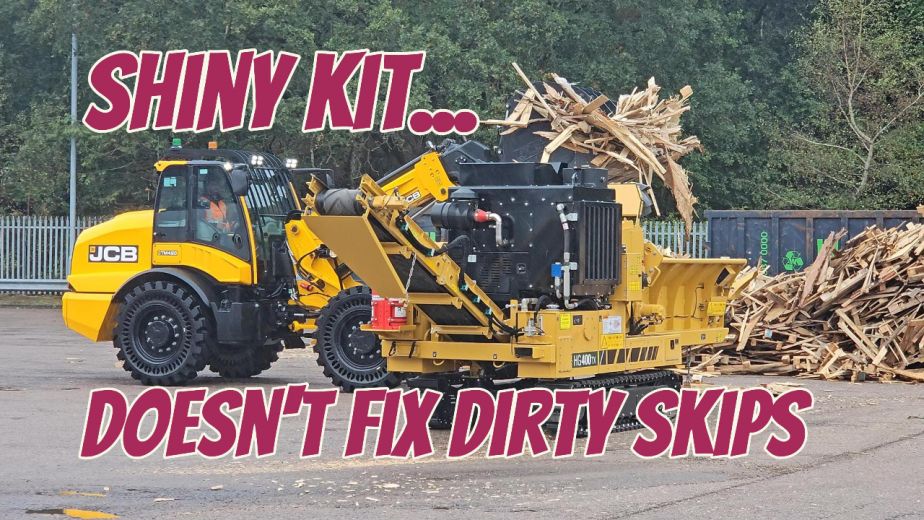~ The Four Words That Could Transform Your Waste Business ~
What if I told you that just four words – just one simple question – could dramatically improve the performance, culture and results of your business?
And I don’t care whether you run a multinational waste company, a regional skip hire firm, or a start-up clearance outfit scraping for its first contract.
This question still applies. And it could change everything:
“Why aren’t we better?”
Improvement shouldn’t start with a crisis
Most businesses do get better over time. But in many cases, they only improve because something goes wrong:
- A complaint comes in
- A customer leaves
- A machine breaks
- A health and safety issue rears its head
And suddenly the focus is on fixes and firefighting.
But here’s the thing: if your business only improves when it’s forced to… you’re not leading. You’re reacting. And reaction is a dangerous habit in a competitive, regulated, margin-tight industry like waste.
Comfort is the enemy of progress
When the phones are ringing and the skips are rolling, it’s easy to assume things are going well.
There’s cash in the bank. Staff are busy. Customers aren’t screaming.
So it must be working… right?
Wrong.
That kind of complacency is the slow death of ambition. And I’ve seen too many firms coast on today’s success, only to be completely unprepared for tomorrow’s disruption.
The best leaders don’t just look at what’s working. They constantly ask, what could work better?
They build a culture of small, consistent improvement — not just big, reactive change.
The most powerful leadership habit you’re not doing
Here’s the challenge I give to the waste firms I work with:
Once a week, take 20 quiet minutes and ask yourself: “Why aren’t we better?”
Look back at the past week. Where did you spot:
- A clunky process?
- An avoidable delay?
- A repeated mistake?
- A cost that didn’t need to be there?
You’re not looking for disasters. You’re looking for opportunity.
Great change is usually slice-by-slice, not shock-and-awe.
Small gains, regularly made, stack up into serious progress.
Ask your team. Then actually listen.
You might be surprised by what you hear.
Your managers’ list will be different to yours. Your drivers or yard staff will have a completely different list.
That’s the gold. Different perspectives reveal blind spots.
So ask:
“Why aren’t we better?”
And when the answers come in, don’t defend, deflect or dismiss.
Listen. Log them. And act on what matters.
Your frontline staff are often closest to the problem and the solution. Ignoring them isn’t just bad leadership: it’s expensive.
Don’t wait for a wake-up call. Create one.
The best businesses don’t wait until something breaks.
They don’t rely on customer complaints to highlight issues.
They don’t need the regulator to point out the gaps.
They lead from the front. They push for better before they’re pushed.
And they embed that mindset into the way they think, plan and operate.
So here’s your reminder; and your challenge:
Why aren’t you better?
And what are you going to do about it?



